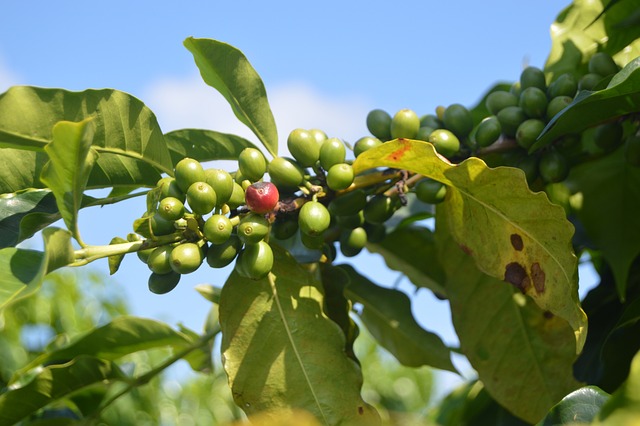Arusha coffee is a type of specialty coffee grown in the Arusha region of Tanzania, located in the northern part of the country near the base of Mount Meru. The area is known for its rich, fertile soil, high altitudes, and favourable climate, all of which contribute to producing high-quality coffee.
Arusha coffee is grown at elevations ranging from 4,500 to 6,500 feet above sea level and is primarily produced by smallholder farmers who own small plots of land. The coffee trees are grown in a traditional shade-grown method, planted beneath the canopy of taller trees to provide natural shade and protection from the sun. This method helps to preserve the natural ecosystem and promotes sustainable agriculture.
The farmers’ hand-picked coffee cherries are then processed using the wet or wet-hulled method. In this method, the outer layers of the coffee cherry are removed to reveal the green coffee beans inside, which are soaked in water to remove the slimy mucilage layer. The beans are then dried in the sun until they reach the appropriate moisture content before being hulled to remove the remaining outer layers.
Arusha coffee is known for its unique flavour profile, characterized by a well-balanced and complex taste. It has a medium to full body, with a smooth, velvety mouthfeel and a long, clean finish. The flavor notes of Arusha coffee include citrus, chocolate, and nuts, with a subtle acidity and a hint of sweetness. It is often described as having a bright and lively flavor that is both smooth and complex.
Arusha coffee production is supported by several organizations and initiatives that work to improve the lives of smallholder farmers and promote sustainable agriculture. One such organization is the Arusha Coffee Farmers Cooperative Society (ACFCS), which was established in the 1980s to support the development of the local coffee industry. The ACFCS works to improve the quality of Arusha coffee through training programs, technical assistance, and market access.
In addition to its unique flavour profile, Arusha coffee is also known for its social and environmental sustainability. The shade-grown method used in its production helps to preserve the natural ecosystem and promotes biodiversity, while the wet-hulled processing method is less water-intensive than other methods. The smallholder farmers who produce Arusha coffee can also earn a fair price for their crop, which helps improve their livelihoods and support their families.
Arusha coffee is gaining in popularity among specialty coffee consumers and is often used in specialty coffee blends. It is also served in several specialty coffee shops around the world. If you are a fan of specialty coffee and are looking for a unique and complex flavour profile.
Read more about coffee in our book of coffee terms.

